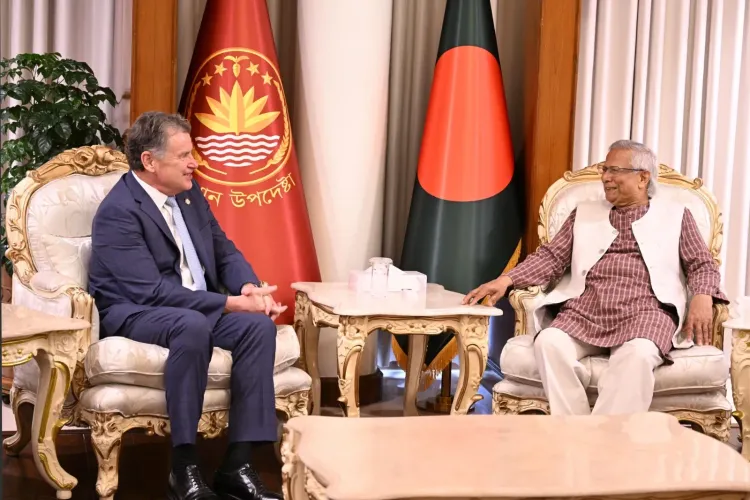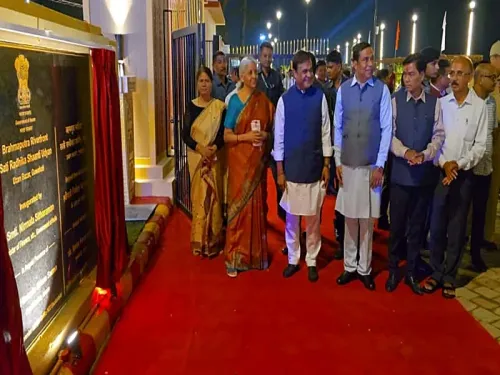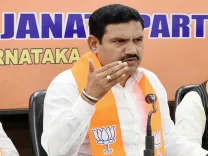What Happened During USCIRF Chief's Meeting with Yunus Amid Ongoing Minority Oppression in Bangladesh?

Synopsis
Key Takeaways
- Stephen Schneck meets with Bangladesh's Chief Adviser, Muhammad Yunus.
- Discussion focuses on the oppression of minorities in Bangladesh.
- UN calls for intervention to protect vulnerable communities.
- Concerns over the Rohingya crisis and ongoing violence against Hindus, Buddhists, and Christians.
- Commitment to uphold religious freedom in proposed constitutional amendments.
Dhaka, May 26 (NationPress) Stephen Schneck, Chair of the US Commission on International Religious Freedom (USCIRF), engaged in discussions with Bangladesh's Chief Adviser, Muhammad Yunus, at the State Guest House Jamuna in Dhaka on Monday. This meeting occurred amid alarming reports of significant oppression facing minorities in Bangladesh under the interim government established after the removal of former Prime Minister Sheikh Hasina in August 2024.
As various international human rights organizations call on the United Nations to intervene and prevent Yunus from empowering religious extremists within the country, this meeting took on heightened importance.
Sources indicate that the dialogue between Yunus and Schneck addressed several critical topics, including the current state of religious freedom in Bangladesh, the July 2024 uprising, the reform agenda of the Interim Government, proposed constitutional changes, and the ongoing Rohingya crisis.
Yunus has historically downplayed the violence inflicted upon Hindus, Buddhists, and Christians in Bangladesh, attributing these acts to personal disputes or accidents. During this meeting, he emphasized the importance of religion in Bangladesh and affirmed his government's commitment to fostering religious harmony in a nation of 171 million.
Reports have indicated that since Hasina's departure in August 2024, Hindus have endured over 2000 assaults.
In September 2024, the UN Human Rights Office dispatched a team to Bangladesh for an independent investigation into these violent incidents, involving human rights professionals and forensic experts.
A report published in February revealed disturbing patterns of security forces intentionally harming protesters, including instances of point-blank shootings.
In response to the allegations of violence against minorities, Yunus reiterated the interim government's vow of transparency while expressing concerns over what he termed as "orchestrated disinformation campaigns."
When asked about the reform commissions and proposed constitutional modifications post-uprising, Yunus assured that any amendments would uphold religious freedom and the rights of minorities.
Furthermore, Yunus requested the USCIRF's assistance in drawing attention to the plight of the Rohingya population and their ongoing oppression in Myanmar's Rakhine State.
He noted that a special United Nations session regarding the Rohingya issue is scheduled for September this year following his appeal.









